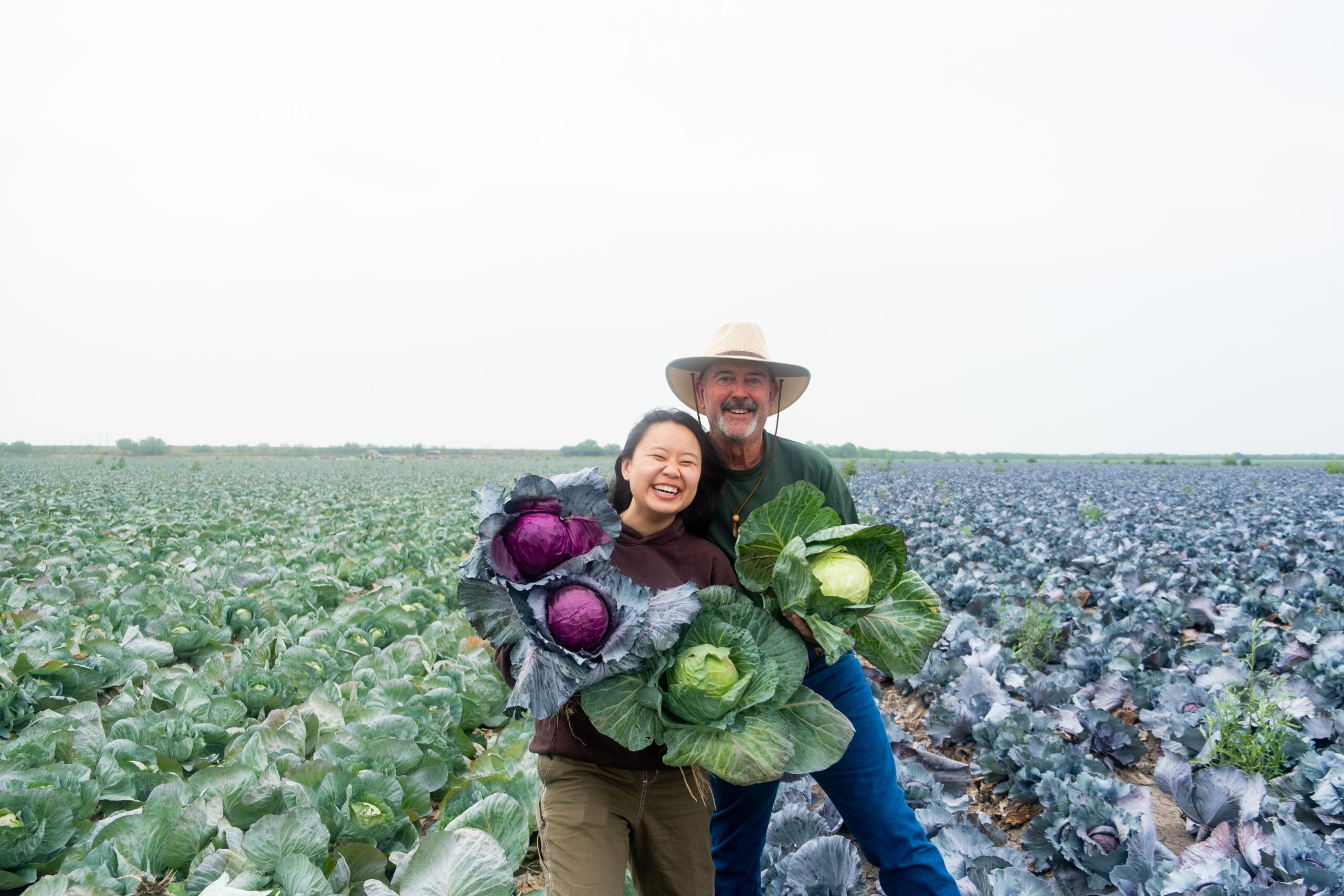The Farmlink Project rescues surplus food from farms and gets it into the hands of hunger-fighting organizations. We’re proud to support their essential work.
It was a month and a half into the pandemic: schools were closed, millions were out of work, and the country was all but shut down. College juniors Ben Collier and Aidan Reilly watched helplessly as news stations reported miles-long lines at food banks struggling to feed the influx of individuals and families facing food insecurity due to Covid-19.
Simultaneously, restaurant closures and slowing demand caused the supply chain to crumble, leaving farmers to toss tons of perfectly good food they could no longer sell.
They thought, “These problems could solve each other, right?” So they got to work — and created the Farmlink Project. Three years later, their kernel idea is a full-fledged organization that connects farmers to food banks, delivering millions of pounds of farm fresh produce that would otherwise be wasted to feed families in need.
Billions of pounds of food are wasted in the U.S. each year while millions of Americans go hungry. During the holidays, Avocado is proud to support the Farmlink Project by donating 1% of its revenues through our partnership with 1% For the Planet. As a result, we’re helping transport 1.57 million pounds of fresh produce from farms to food banks, providing 1.31 million meals to those in need, avoiding 2,361 metric tonnes of CO2e, and saving 31.9 million gallons of water.
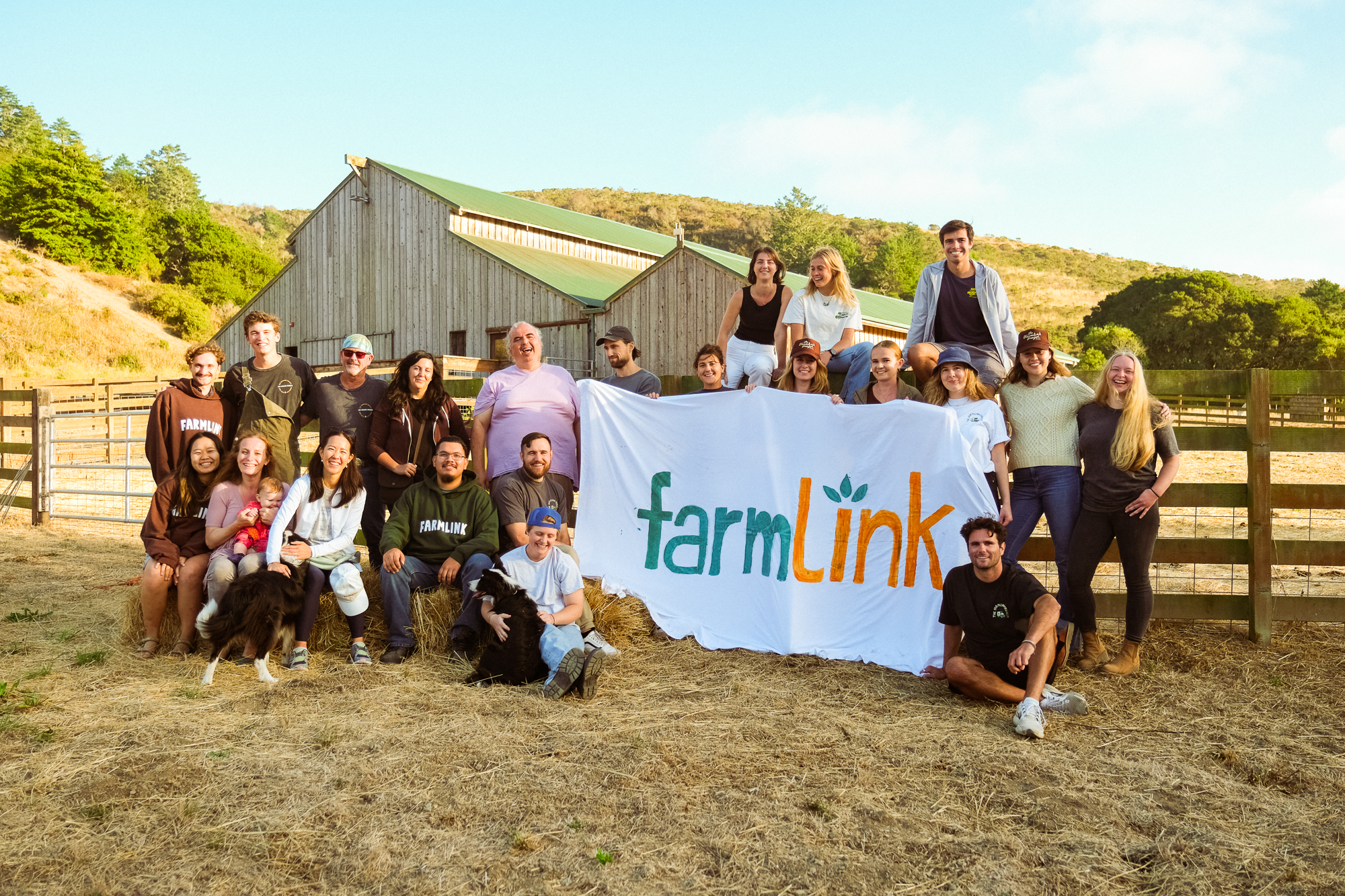
Read more: What Is 1% For the Planet?
Farmlink was not an out-of-the-gate success. It began with a spreadsheet of more than 200 farms in California, a lot of cold calls, plenty of rejection, and perseverance to grow the organization. “We weren’t met with much excitement, so we were thinking maybe this isn’t a good idea,” says Kate Nelson, Farmlink’s Chief Marketing Officer.
Then, on the 201st call, an egg farm in California agreed to give Farmlink its surplus eggs if they could transport them. Two team members, including now CEO Ben Collier, rented a Uhaul, picked up the eggs, and drove them to a food bank where they had been volunteering.
“Then we did it again with onions, then we did it again,” says Nelson. “And before we knew it, it had caught on to the point where Uber Freight was excited about what we were doing and helped us with transport.”
In addition to social media and word-of-mouth networking, a special about Farmlink aired by ABC World News Tonight helped spread the word about their mission, and fellow college-goers reached out to join the cause. Eventually, more than 600 young people were on the front lines fighting hunger and food waste.
“It caught on like wildfire,” says Nelson. “There was a period that summer when everyone I knew was working on Farmlink, whether it was building the website, running social media, calling farms, applying for grants, or emailing Michele Obama.”
By May 5, 2020, Farmlink delivered 50,800 pounds of food to those in need. They were just getting started. To date, the nonprofit has rescued 130 million pounds of food, delivered 108 million meals, and, in the process, prevented 153,825 carbon dioxide equivalent emissions from entering the atmosphere.
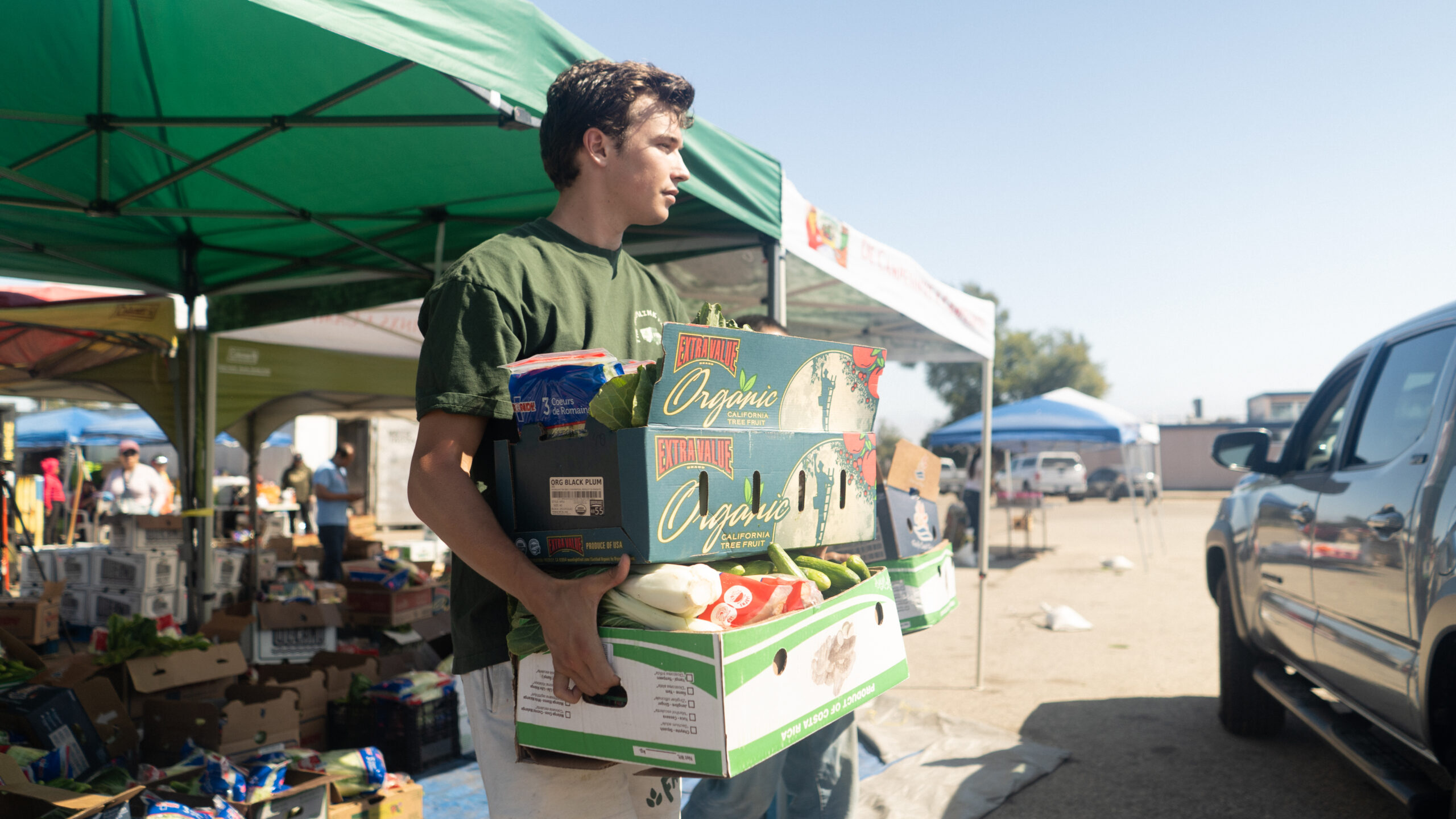
Read more: How to Support Food Security
Farmlink’s work is critical to both fighting food insecurity and climate change. For every 10 pounds of food produced in the U.S., four pounds are wasted — or approximately $161 billion annually. The money lost from two years of food waste could eradicate global hunger and malnutrition for an entire year.
Once this wasted organic material makes it to landfills, it breaks down, releasing methane, a harmful greenhouse gas that warms the planet 86 times more than carbon dioxide. Not only that, food loss and waste account for 5.9 trillion gallons of wasted water per year, equal to the annual water usage of 50 million homes.
“What we thought was a pandemic problem was not, Covid-19 simply provided a spotlight on issues that are baked into our food system and have persisted since the pandemic has come to an end,” says Nelson. “One-third of all of the food we grow goes to waste. Farmers plan for an overcrop, buyers don’t want to buy food that doesn’t look perfect, and price plays a large role as well.”
Since 2020, the brand has built long-standing relationships with farmers like Taylor Farms, the largest lettuce producer in California, whom they get donations from nearly every day. Its core team is still a slate of ambitious Gen Z’ers, but it has added industry professionals, too, like Emma Worth, who has 17 years of experience in the nonprofit sector, and Luis Yepiz, a food rights activist. They’re not renting Uhauls, either.
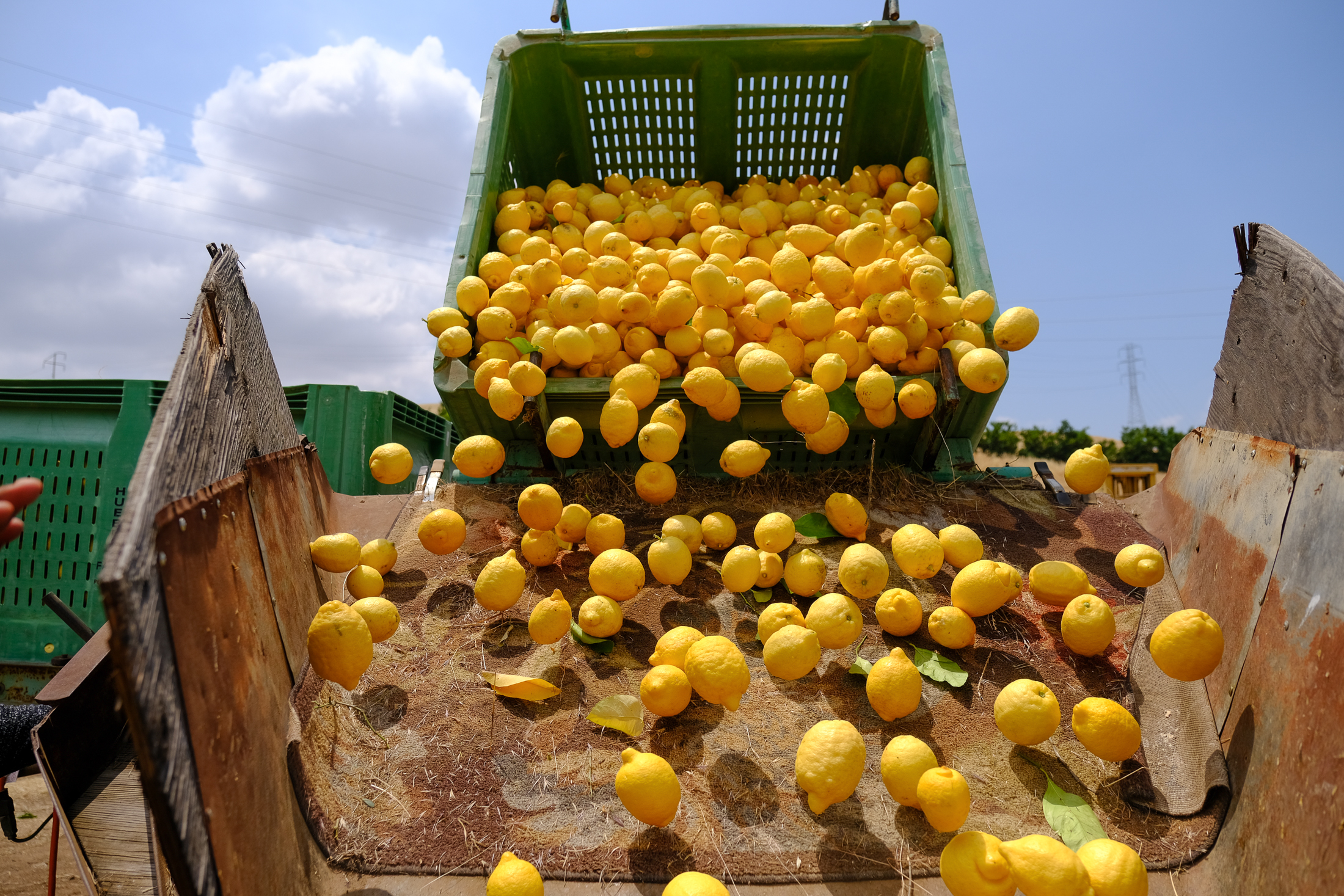
The organization also offers myriad ways to get involved, including a 9-week work-study program, a remote fellowship opportunity, and the ability to fundraise from any location.
In the year ahead, the Farmlink Project is scaling delivery in an effort to be the fastest food recovery organization in the country — and the most dynamic. Currently, they’re rescuing 16 million pounds of apples in one state with plans to rescue 20 million pounds of potatoes in another. Of course, long-term, their goal is to be put out of business and get rid of the need for nonprofits like Farmlink.
“Partnerships like the one with Avocado are a really great symbiotic relationship for brand awareness,” says Nelson. “As we’re trying to change the social perspective of food access and waste, having partners like Avocado is essential for us.”
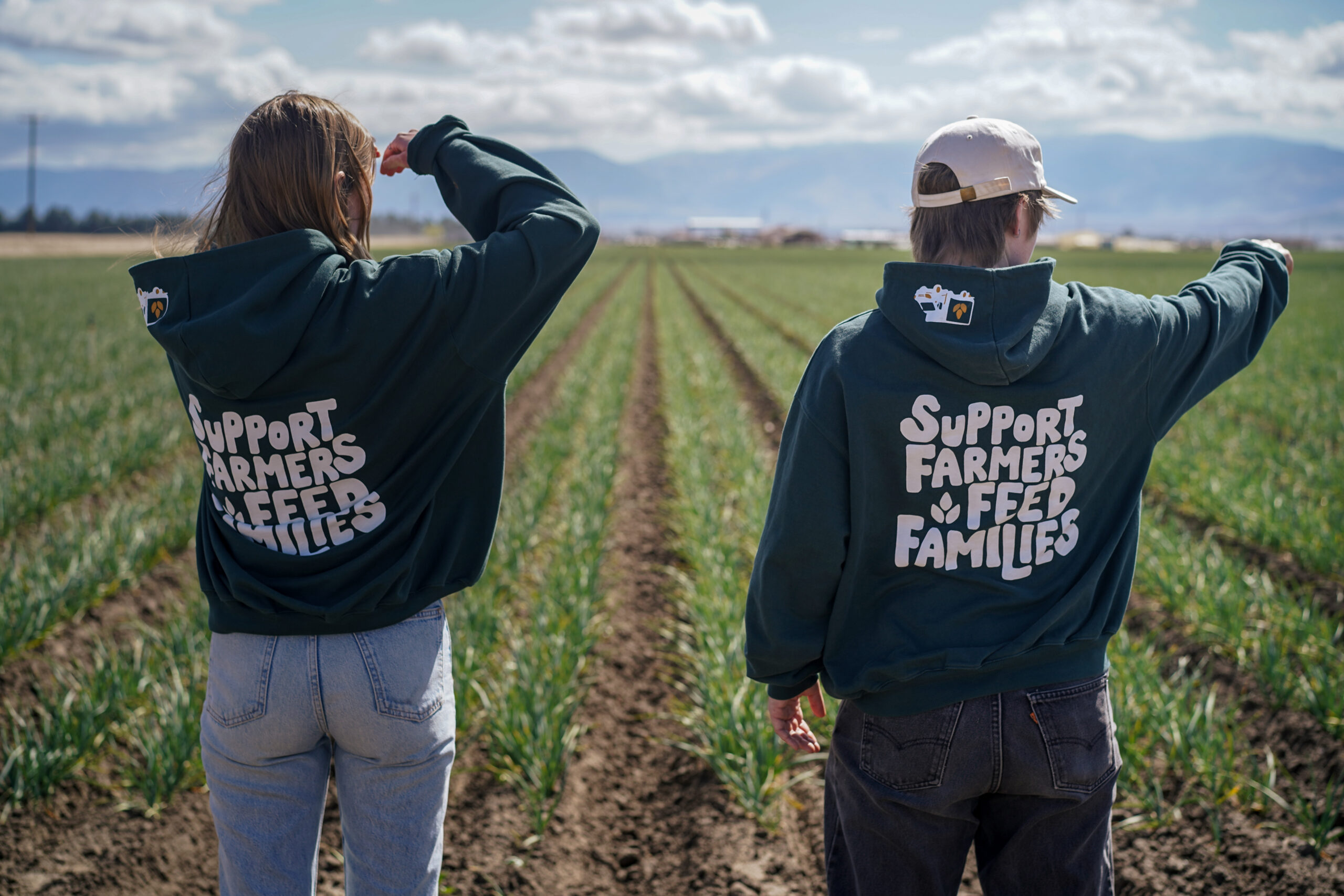
Read more: How Food Forests Help Solve Food Insecurity
Help Avocado support The Farmlink’s mission. During our Black Friday Sale, we’re donating 1% of all revenue to The Farmlink Project through our partnership with 1% For the Planet.

Shop Pillows
The Essential Organic Pillow Collection
Gentle, breathable, non-toxic support.




